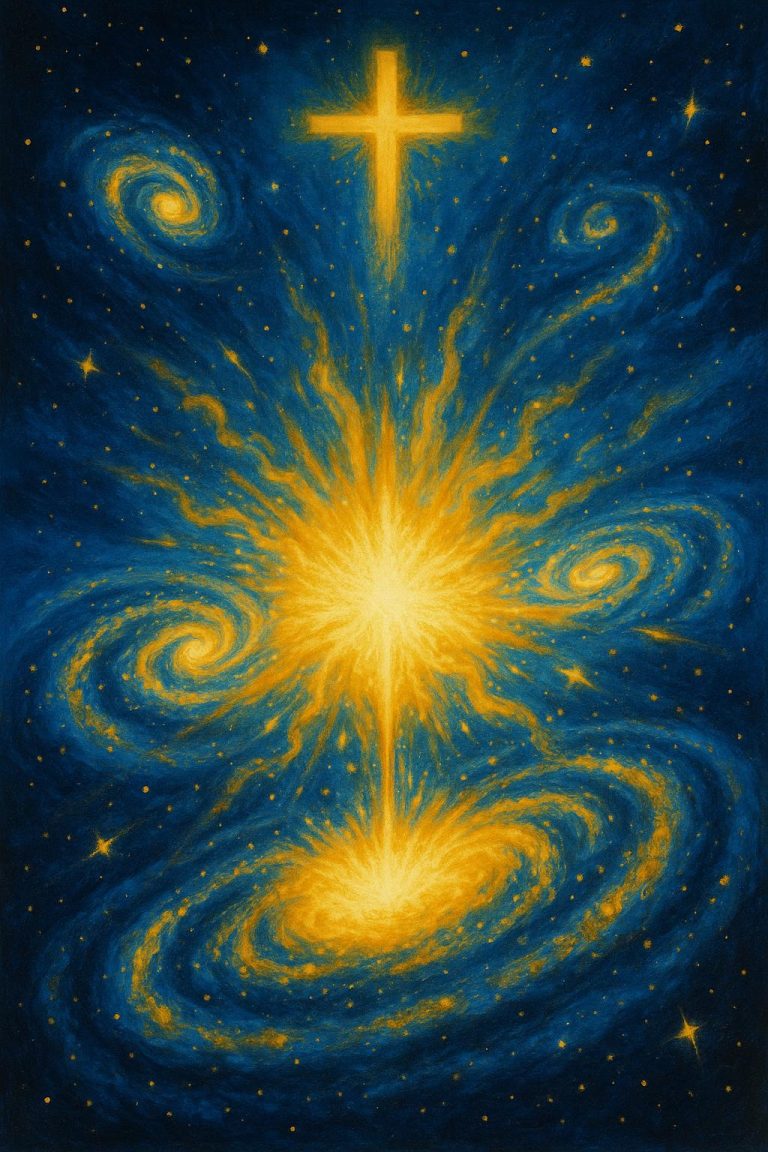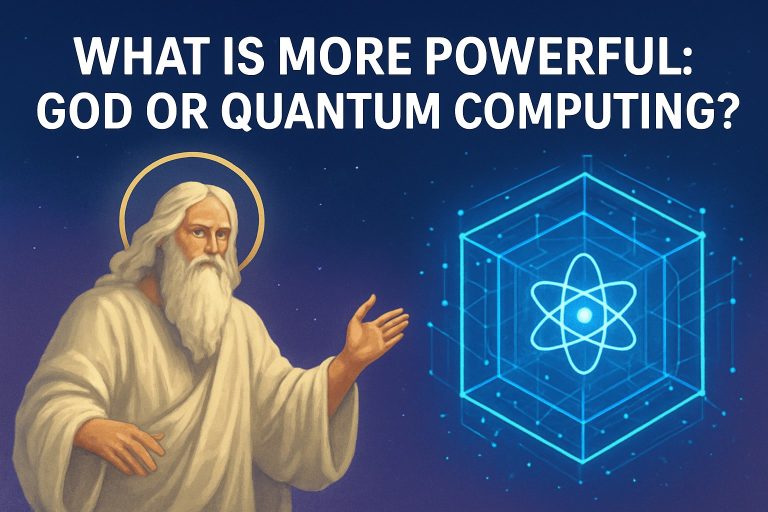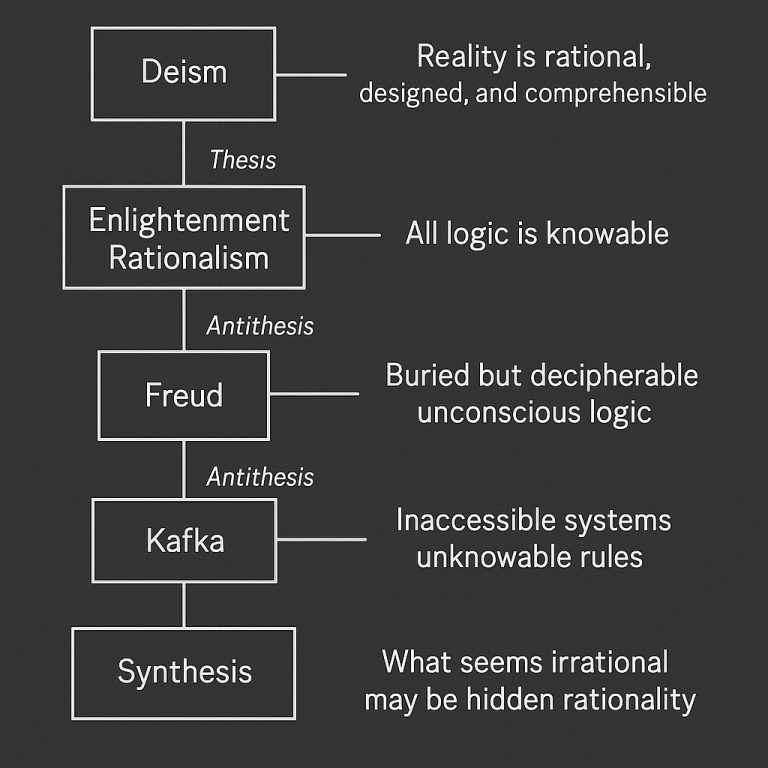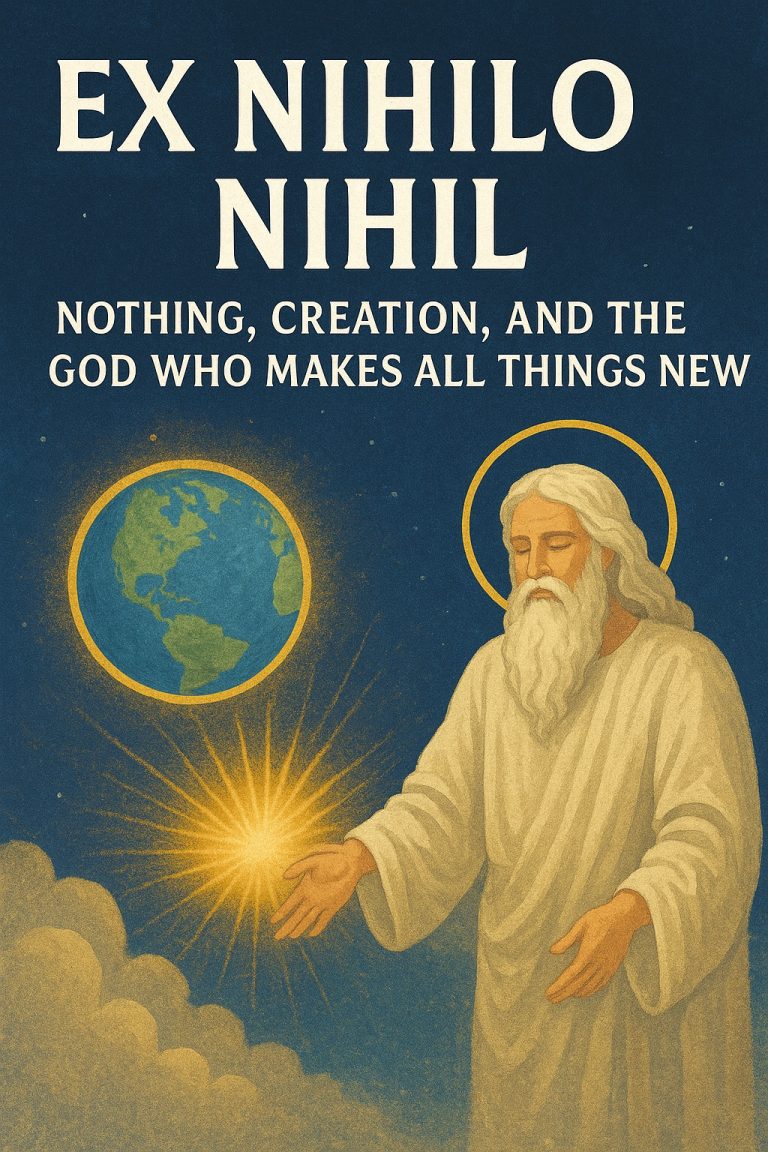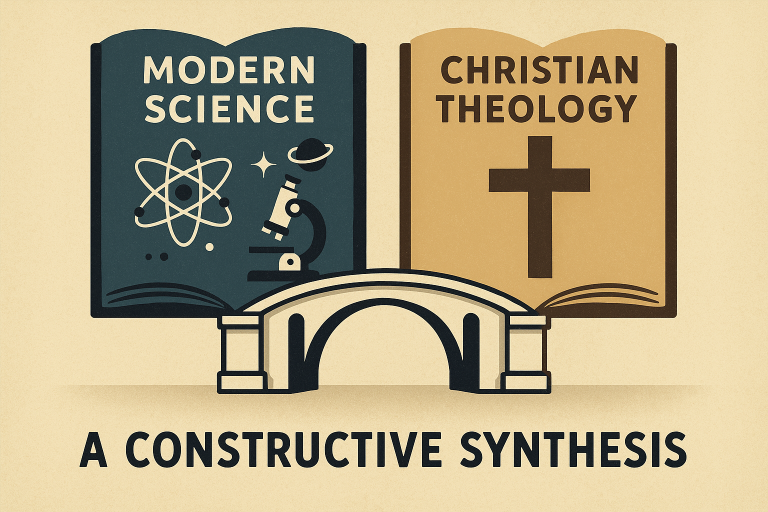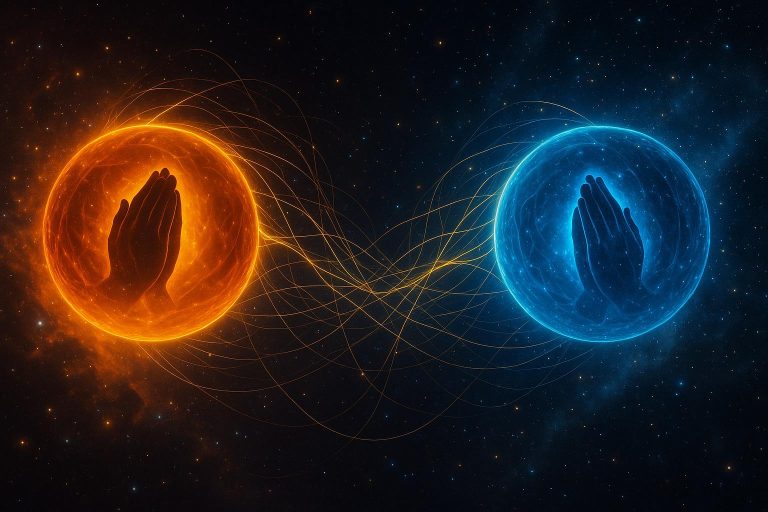A Comparison of Goethe’s Worldview and the Christian Worldview in John 14:6
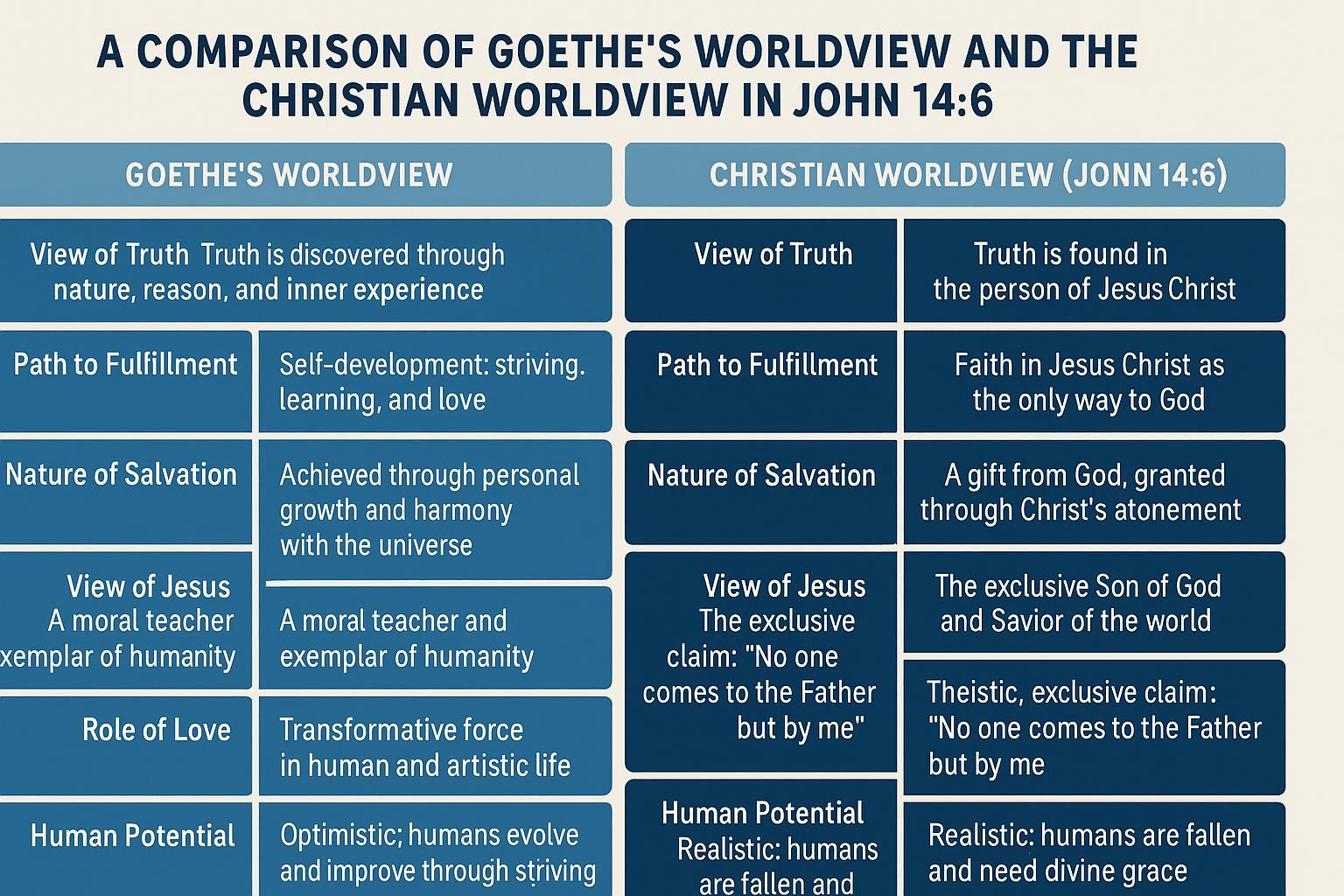
The contrast between Johann Wolfgang von Goethe’s worldview and the Christian worldview, particularly as expressed in John 14:6, highlights two fundamentally different perspectives on truth, human purpose, and the nature of salvation. Goethe, the German poet, scientist, and philosopher of the Enlightenment and Romantic era, developed a humanistic and nature-centered view of life. In contrast, the Christian worldview, especially the statement by Jesus in John 14:6 — “I am the way, the truth, and the life. No one comes to the Father except through me” — presents an exclusive and Christ-centered approach to truth and salvation.
Goethe’s Worldview: The Cultivation of the Individual
Goethe viewed life as a journey of self-development and harmonization with the natural world. He saw human beings not primarily as sinners in need of redemption, but as evolving souls capable of moral, intellectual, and artistic growth. In works like Faust, Goethe explores the human desire for knowledge, experience, and meaning, ultimately suggesting that redemption comes not through faith in a deity, but through striving, learning, and love.
Goethe’s worldview is deeply pantheistic and immanent. He believed in a divine force within nature but rejected dogmatic religion. For Goethe, morality was not imposed from outside but developed within the human spirit as it aligned with the rhythms of nature and the universe. He had admiration for Jesus as a moral teacher and a model of authentic human development, but he did not accept the orthodox Christian claim of Jesus’ exclusive divinity and salvific role.
The Christian Worldview in John 14:6: The Centrality of Christ
John 14:6 encapsulates a central tenet of Christianity: salvation is found only in Jesus Christ. The verse asserts that Jesus is the way — not one way among many — and that access to God the Father is possible only through him. This claim excludes pluralistic or relativistic interpretations of truth and salvation. In the context of the Gospel of John, Jesus speaks these words to his disciples to reassure them before his crucifixion, emphasizing that his death and resurrection are necessary for their eternal life.
This verse also reveals Christianity’s personal and relational nature. Jesus is not merely a teacher of truth; he is the truth. He is not just a guide to life; he is life itself. In this worldview, human beings are estranged from God by sin and are in need of reconciliation — a reconciliation that only Christ can provide. The emphasis is on grace, not self-development, and salvation comes through faith, not striving.
Comparative Analysis
The most striking difference between Goethe’s and the Christian worldview is their approach to salvation and truth. Goethe trusts in human potential and inward illumination. He sees the divine in the process of becoming, in art, in nature, and in the striving self. Christianity, as expressed in John 14:6, views truth as incarnate in Jesus Christ, and insists that reconciliation with God is not humanly achievable — it must be received through faith in Christ.
Another key difference lies in their treatment of exclusivity. Goethe was inclusive and universal in his thinking, drawing wisdom from multiple religious and philosophical traditions. He was wary of any claim to absolute truth, especially if it led to intolerance. In contrast, Jesus’ statement in John 14:6 is explicitly exclusive, asserting a single path to God.
Yet, there are also parallels. Both Goethe and Christianity affirm that human life has a deeper meaning and that love plays a central role in this meaning. Goethe saw love as a transforming force in human relationships and art; Christianity sees divine love — agape — as the very foundation of salvation.
Conclusion
While Goethe’s worldview celebrates human potential, nature, and the inward search for meaning, the Christian worldview rooted in John 14:6 centers on the unique person of Jesus Christ as the only way to truth and eternal life. The contrast highlights a fundamental tension between humanism and theism, autonomy and grace, pluralism and exclusivity. Yet both offer profound visions of what it means to live a meaningful life — one through personal development and harmony with the world, the other through faith in the one who claims to be the way, the truth, and the life.

